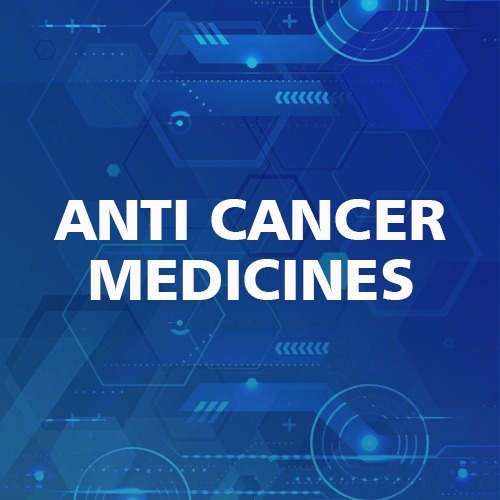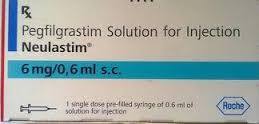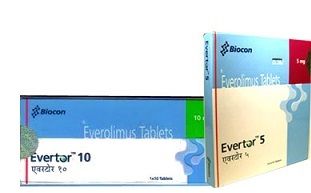
Anticancer Medicines
Product Details:
- Feature Other
- Ingredients Other
- Application Other
- Physical Color/Texture Other
- Fermentation Smell Normal Smell
- Shelf Life 2 Years
- Click to view more
Anticancer Medicines Price And Quantity
- 5000-10000 Piece
- 10.00 - 100.00 USD ($)/Piece
- 10-10000 USD ($)/Piece
Anticancer Medicines Product Specifications
- Other
- Other
- Other
- 2 Years
- Other
- Normal Smell
Anticancer Medicines Trade Information
- Nhava Sheva
- 10000 Piece Per Week
- 7-15 Days
- Yes
- Sample costs shipping and taxes has to be paid by the buyer
- Asia Australia North America South America Eastern Europe Western Europe Middle East Africa Central America
- All India
Product Description
Anticancer drugs, sometimes referred to as cancer drugs or chemotherapy, are pharmaceuticals used to treat different forms of cancer. These medications function by focusing on and preventing the development and spread of cancer cells within the body. They can be given by a variety of routes, including intravenous infusions, injections, and oral pills. Depending on the precise type and stage of the disease, anticancer medications may be used either alone or in conjunction with other treatments including surgery, radiation therapy, or immunotherapy. Paclitaxel, Doxorubicin, Cisplatin, Imatinib, Rituximab, and Tamoxifen are typical examples of anticancer drugs. To obtain the greatest results, these medications are used based on the unique patient features and under the direction of skilled oncologists.
Features of Cancer-Preventive Drugs:
1. Diverse Drug Types: Anticancer medications come in a variety of forms and each one targets a distinct component of the growth and division of cancer cells.
2. Specific Targets: These drugs are made to selectively target cancer cells, causing the least amount of harm to healthy cells and having the fewest negative side effects.
3. Treatment Flexibility: Anticancer medications offer a flexible approach to cancer therapy because they can be used alone or in combination with other treatment modalities.
4. They can be given via injection, intravenous infusion, or oral administration, giving patients a variety of medication delivery choices.
5. Personalised Treatment: Based on the patient's cancer kind, stage, and unique response to treatment, oncologists choose the best anticancer medications.
Benefits of Cancer Treatment Drugs:
1. Anticancer drugs work to reduce or get rid of tumours in an effort to slow the spread of cancer and improve prognosis.
2. Increased Survival: For many cancer patients, effective administration of these medications can result in a prolonged survival time and improved disease control.
3. Improved Quality of Life: Anticancer medications can improve a patient's overall quality of life by halting the growth of cancer and easing symptoms.
4. Combination Therapies: For more thorough cancer management, anticancer medications can be used in conjunction with other treatments including surgery or radiation therapy.
5. Adjuvant Therapy: These drugs may be used as adjuvant therapy following surgery or other forms of cancer treatment to stop the spread of the disease.
6. Targeted Therapy: Many of the most recent anticancer drugs are targeted therapies that concentrate on particular molecular markers seen in cancer cells, making them more efficient and less harmful.
7. Research and Development: This field's ongoing research is producing new and improved anticancer medications, raising the possibility of better outcomes and potential treatments.
It is critical to understand that the efficacy and advantages of anticancer medications might change depending on the features of each patient, the type of cancer, and the stage of the disease. To achieve the best results and control any potential adverse effects, close physician supervision and tailored treatment programmes are required. Throughout the course of treatment, patients should seek the counsel and guidance of their healthcare providers.

Price:
- 50
- 100
- 200
- 250
- 500
- 1000+

 English
English Spanish
Spanish French
French German
German Italian
Italian Chinese (Simplified)
Chinese (Simplified) Japanese
Japanese Korean
Korean Arabic
Arabic Portuguese
Portuguese





